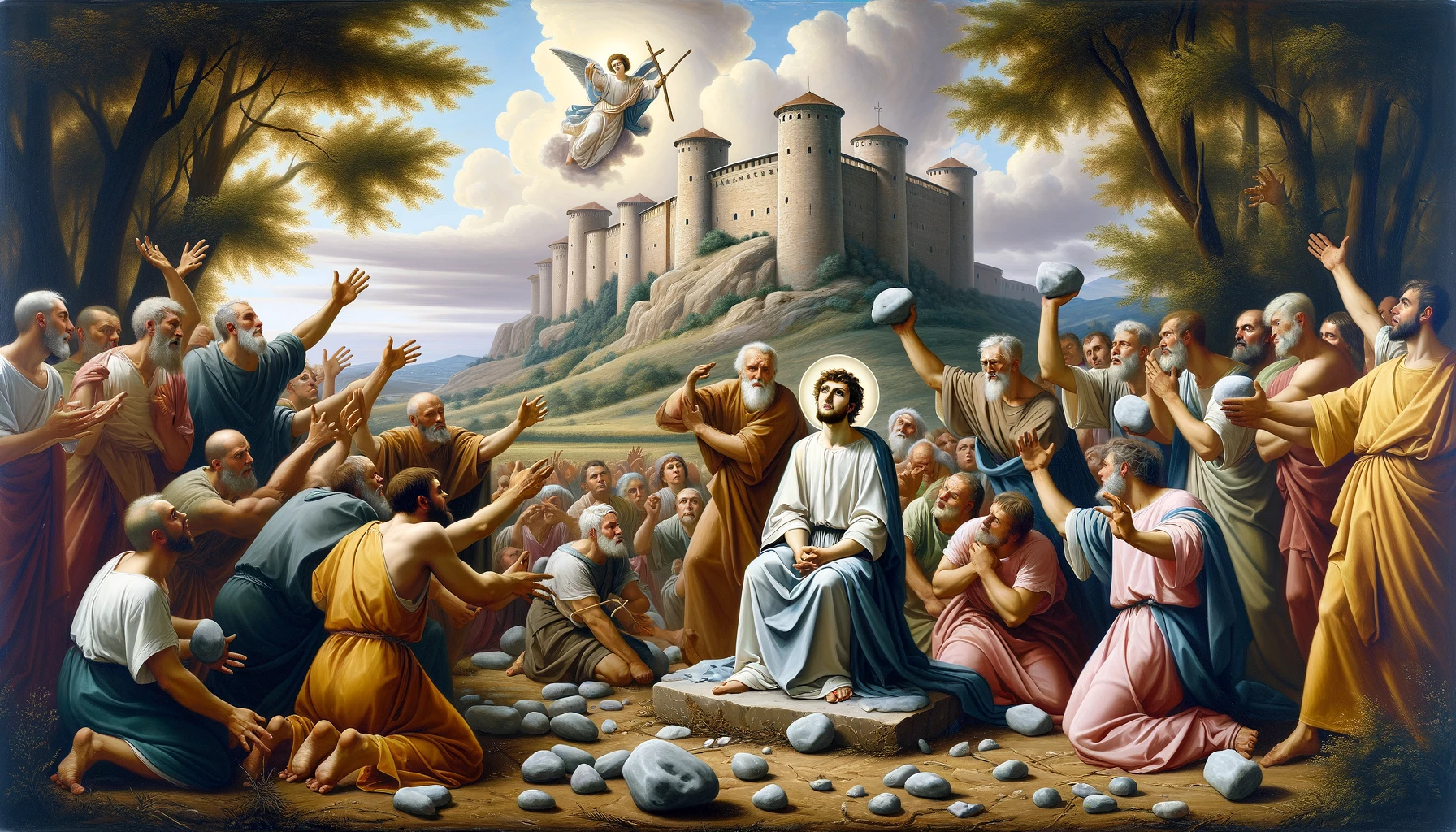St. Stephen: The First Martyr Who Shaped Christianity
11-07-2024
St. Stephen is widely recognized as the first Christian martyr whose unwavering faith and ultimate sacrifice marked a significant moment in early Christian history. By boldly defending his beliefs before the Jewish Sanhedrin, Stephen set an example of courage and commitment that profoundly influenced the early Church and its followers.
Stephen's Background and Role as a Deacon
Stephen was a Hellenist, a foreign-born Jew who spoke Greek and lived in Jerusalem. As a member of the early Christian community, Stephen was known for his wisdom, faith, and ability to communicate effectively. His Greek heritage and language skills made him particularly influential in engaging with other Greek-speaking Jews and those from the Diaspora, helping to bridge cultural and linguistic divides within the early Church.
The early Christian community in Jerusalem faced internal challenges, including complaints from Hellenist converts that their widows were being neglected in daily food distributions. To address these concerns, the apostles decided to appoint seven deacons to oversee practical matters and ensure fair treatment for all. Stephen was one of these deacons, chosen for his outstanding character and devotion. His role involved administrative duties, preaching, and teaching, which helped spread the Christian message more widely.
The Trial and Martyrdom of St. Stephen
Stephen was known for his compelling preaching about Jesus Christ, which captivated many but also led to opposition from some Jewish religious leaders. Unable to counter his arguments, these leaders falsely accused him of blasphemy, leading to his trial before the Sanhedrin, the Jewish council. During his trial, Stephen delivered a powerful speech, recorded in the Acts of the Apostles, in which he recounted the history of Israel, criticized the current religious practices, and accused the Jewish leaders of betraying and murdering Jesus. He boldly declared that he saw a vision of Jesus standing at the right hand of God, a statement that further enraged his accusers.
The members of the Sanhedrin, unable to refute Stephen's arguments, reacted with anger and dragged him out of the city to be stoned. As Stephen faced his executioners, he displayed remarkable calmness and compassion. He prayed for his attackers, asking God to forgive them, mirroring the words of Jesus on the cross. His final words, “Lord Jesus, receive my spirit,” reflected his deep faith and readiness to embrace martyrdom for his beliefs.
What Happened After The First Martyr?
The first Christian martyr and St. Stephen's death marked the beginning of a period of intense persecution against Christians in Jerusalem. This persecution led to the scattering of believers, often referred to as the diaspora, which played a crucial role in spreading Christianity beyond Jerusalem to other regions. Though facing increased hostility, the early Christian community was inspired by Stephen’s example to stand firm in their faith. His martyrdom demonstrated the seriousness of their commitment and strengthened their resolve to continue proclaiming the message of Jesus.
The first martyr influenced the key figures in the early Church. St. Stephen's martyrdom had a profound effect on Saul, who initially approved of Stephen's execution but later experienced a dramatic conversion on the road to Damascus. Saul’s transformation into Paul the Apostle was a turning point for the Christian faith, and his missionary work and writings would shape the theological foundations of Christianity. Stephen’s courage and willingness to die for his beliefs were a powerful witness that likely influenced Paul’s dedication to spreading the gospel.
Stephen’s Legacy and Continued Relevance
St. Stephen’s legacy lives on as a symbol of faith, courage, and forgiveness. In many Christian traditions, his feast day, St. Stephen's Day, is observed on December 26, the day after Christmas. This day allows Christians to remember his sacrifice and reflect on the importance of standing up for one’s faith. Stephen is also recognized as the patron saint of deacons and stonemasons, highlighting his role in the early Church and his association with both spiritual and practical service.
Stephen's story inspires art, literature, and religious practice. His example encourages believers to show compassion, even in the face of persecution, and to hold steadfastly to their convictions. The story of Stephen also emphasizes the early Christian message of love and forgiveness, which remains central to Christian teaching today.
Honoring St. Stephen Today
At St. Patrick’s Guild, we celebrate St. Stephen's legacy by offering a selection of items that honor his memory and inspire faith. Our collection includes statues, medals, and prayer cards that serve as reminders of his devotion and courage. These items make thoughtful gifts for those named after St. Stephen or anyone who feels a connection to his story. By keeping his memory alive, we draw strength from his example and continue to uphold the values he represents.

